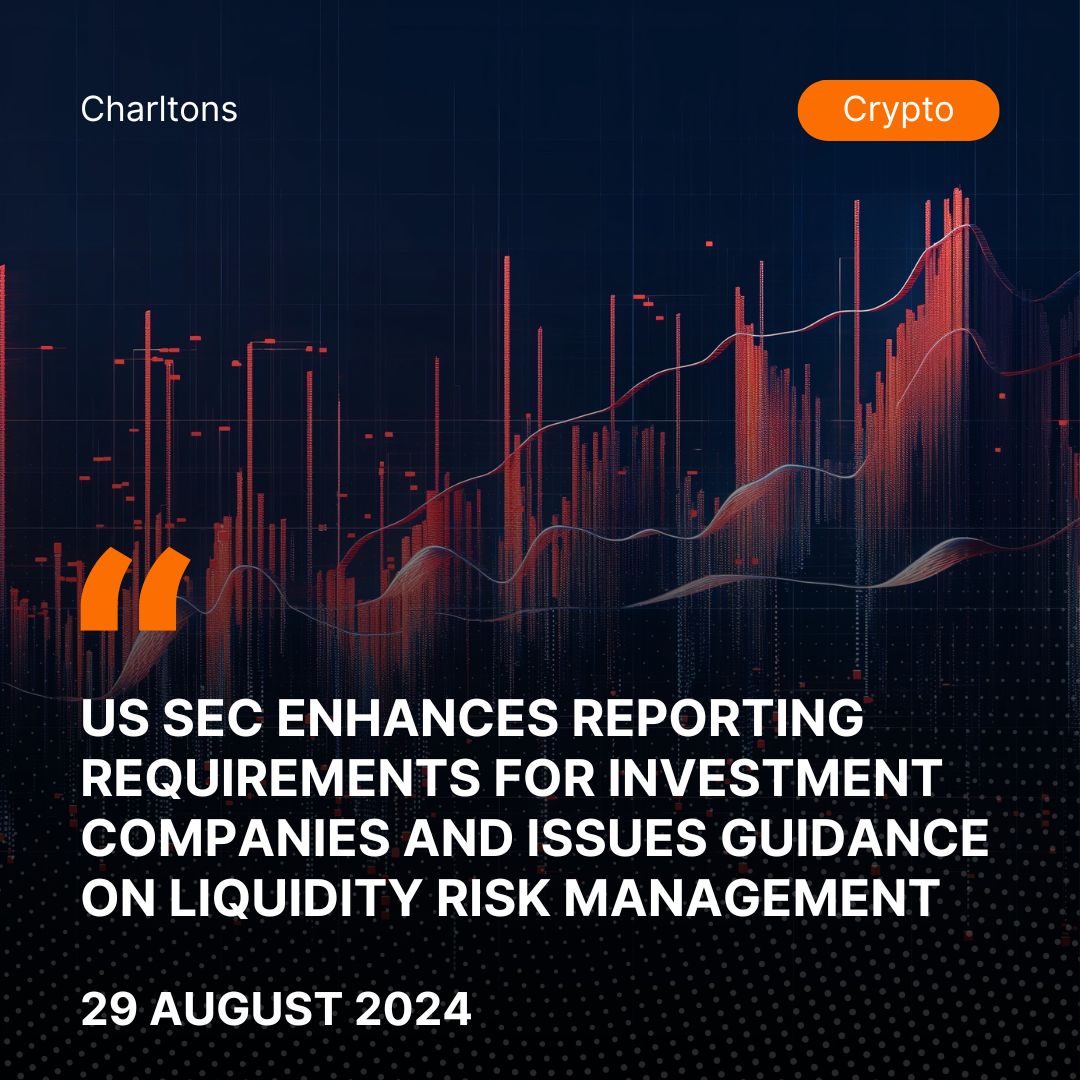
On 28 August, 2024, the U.S. Securities and Exchange Commission (US SEC) announced new amendments to reporting requirements for certain registered investment companies, aimed at improving transparency and regulatory oversight. These changes, which affect Form N-PORT filings, are designed to provide both the SEC and investors with more timely and detailed information about the portfolio holdings of these funds.
The US SEC’s amendments to Form N-PORT will require registered open-end funds, registered closed-end funds, and exchange-traded funds organised as unit investment trusts to file monthly reports instead of the current quarterly filings. These reports will need to be submitted within 30 days after the end of each month. Previously, funds had a 60-day window after the end of each quarter to submit these reports. These monthly reports will be made publicly available 60 days after the end of each month, rather than only at the end of each quarter. This change is expected to significantly increase the amount of data available to investors, enhancing their ability to monitor fund portfolios throughout the year.
In addition to the Form N-PORT amendments, the US SEC has also made changes to Form N-CEN reporting requirements. These amendments will require open-end funds to report specific information about the service providers they use to meet liquidity risk management program requirements. This update aims to allow the US SEC to better track and monitor liquidity risk management practices within the industry. The Commission also issued new guidance to address questions related to liquidity risk management for open-end funds, based on insights gained from industry outreach and monitoring activities.
The US SEC’s amendments to Forms N-PORT and N-CEN will take effect on 17 November, 2025. Investment funds will be expected to comply with these new requirements for reports filed on or after this date. However, fund groups with net assets of less than US$1 billion have been granted an extended compliance period and will not need to adhere to the Form N-PORT amendments until 18 May , 2026.
Cryptocurrency investment companies that fall under this scope should pay close attention to these new reporting requirements. The enhanced transparency and more frequent reporting obligations are particularly relevant for funds dealing with volatile and rapidly changing assets like cryptocurrencies. These firms must ensure they have systems in place to meet the more stringent reporting timelines, as failure to comply could result in regulatory scrutiny or penalties. Additionally, the amendments’ emphasis on liquidity risk management is particularly significant for crypto funds, given the unique liquidity challenges posed by the digital asset market.
These changes may present challenges, particularly for smaller funds and crypto entities. The increased reporting frequency and the need to track liquidity risk management practices more closely will require additional resources and may strain smaller firms with limited compliance infrastructures. While these amendments are aimed at strengthening the overall market, compliance with the new rules may require investment in the necessary systems and processes to meet these requirements effectively.
(Source: https://www.sec.gov/rules-regulations/2024/08/open-end-fund-liquidity-risk-management-programs-swing-pricing-form-n-port-reporting, https://www.sec.gov/newsroom/press-releases/2024-110, https://www.sec.gov/files/ic-35308-fact-sheet.pdf, https://www.sec.gov/files/rules/final/2024/ic-35308.pdf)





